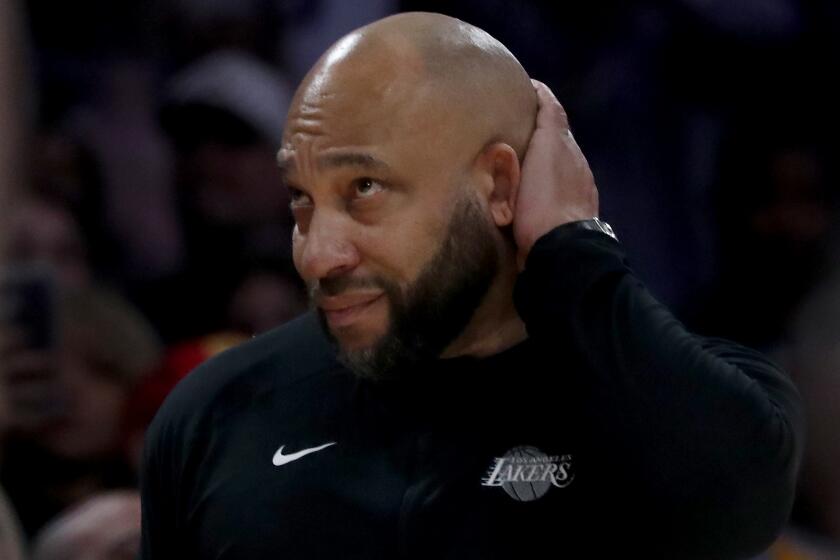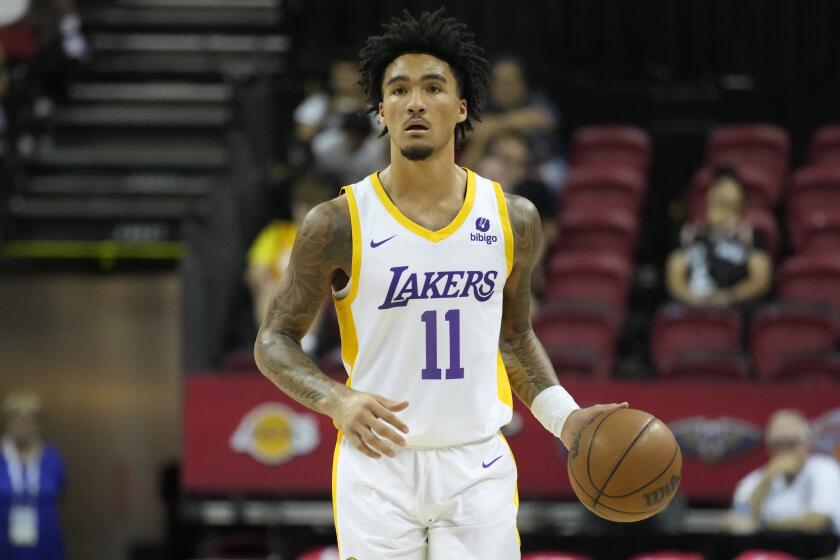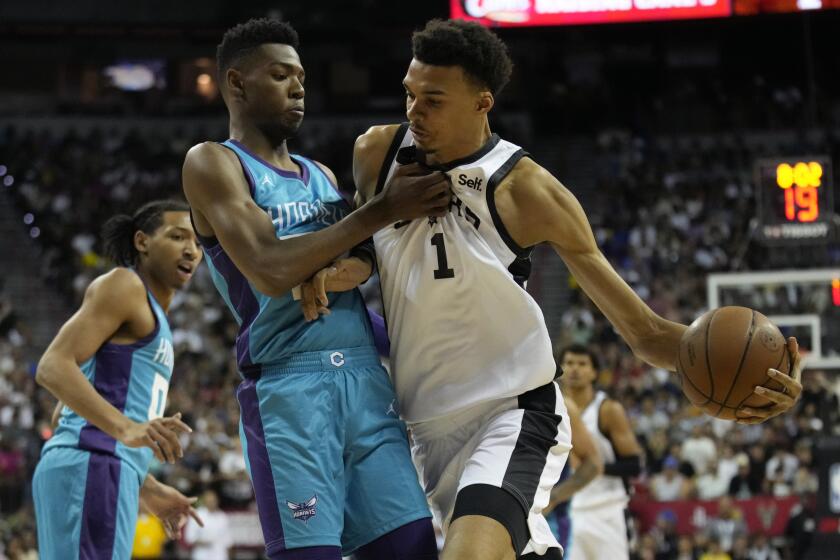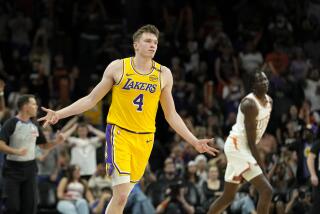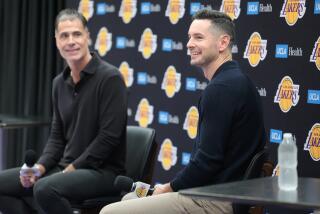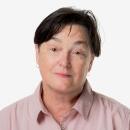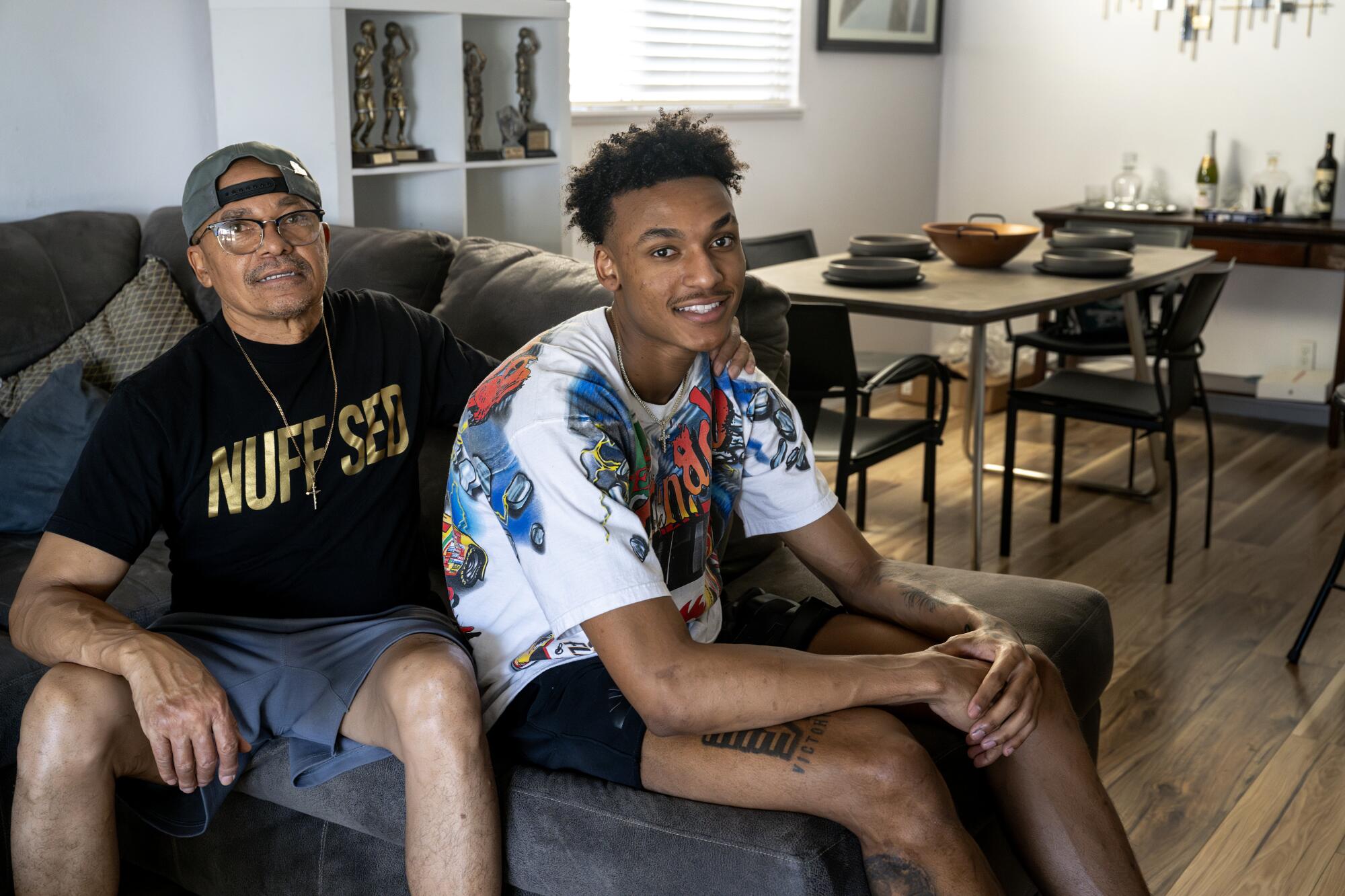
LAS VEGAS — Walking around the folks buzzing with excitement on their way inside the Forum in Inglewood, Robert Lewis was amazed.
He was just a kid, maybe 11, maybe 12, living a mile away from the Lakers arena in the early 1970s when he met a man who offered him and his brother, Michael, a job slinging programs to fans on their way inside to watch Jerry West, Wilt Chamberlain and Gail Goodrich.
“And with two minutes before the game was over, they’d always let us in. And then we’d walk in and get real close,” Lewis remembered during an interview in his Las Vegas home. “... It was amazing, seeing all the players.”
And then they’d go home with a couple of bucks in their pocket.
Lakers coach Darvin Ham seems to have taken personal offense to flopping accusations by Golden State Warriors coach Steve Kerr during the teams’ NBA playoff series.
Never, Lewis thought, would he actually get close to a Lakers player. He was just a practical L.A. kid whose dreams extended to things like driving alongside the ocean on Pacific Coast Highway.
Never, he figured later in life, would his youngest son, Maxwell, a player for Pepperdine, land a job with his favorite team. He still felt that way during the NBA draft last month, and then a torturous night somehow ended with a call from Lakers general manager Rob Pelinka in the second round.
It wasn’t how Robert Lewis thought the story would go. No, the thought of it was too much to even consider.
“I’m blown away,” he told The Times. “Still in shock. Because all during the process of him getting drafted and the processes of him trying out for the teams, I never once said, ‘I hope he goes to the Lakers.’ I would’ve been asking too much. C’mon, Rob. Just get him drafted. And when they said Lakers, man, I was like numb.
“It’s ... it’s ... it’s crazy. Hard to believe.”
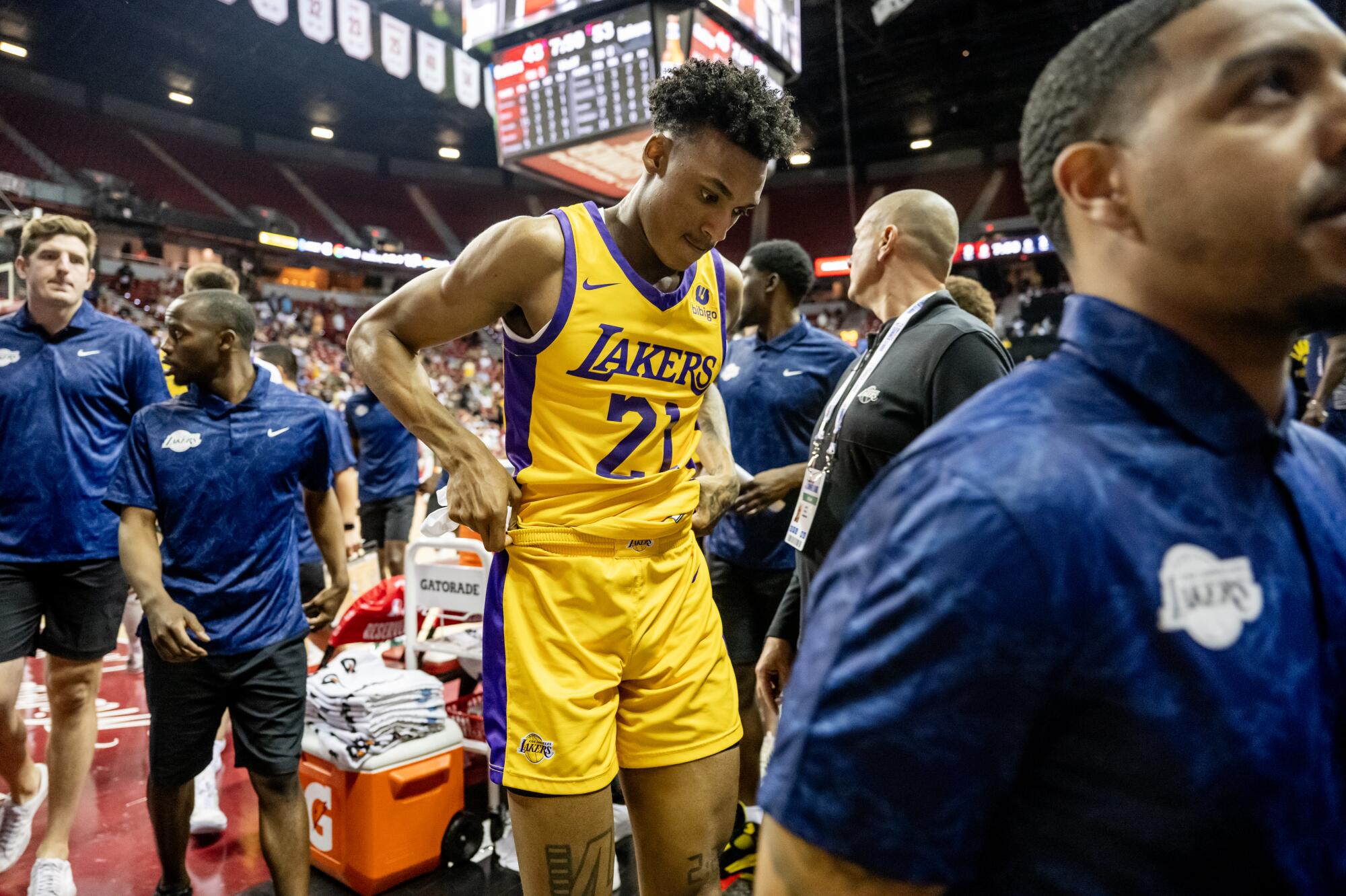
It’s just too perfect, an obsessive Lakers fan now with a child on the team.
“He just always had Laker jerseys on,” Maxwell Lewis said. “He had some Lakers Converse, the flag that would stick out the window. ... Pencils. Gatorades. Cereal boxes. He has some stuff.”
At the draft, the Lakers landed a 6-foot-7 wing with an ideal NBA body and a scorer’s skill set who can finish at the rim and behind the three-point line. The Lakers scouted Lewis in college, he starred in a team workout early in the predraft process, and as he slipped into the second round, the Lakers pounced.
Through four games in the Las Vegas Summer League, Lewis has averaged 6.8 points and 4.0 rebounds.
But despite his dad’s fandom, this wasn’t some long-fated destiny.
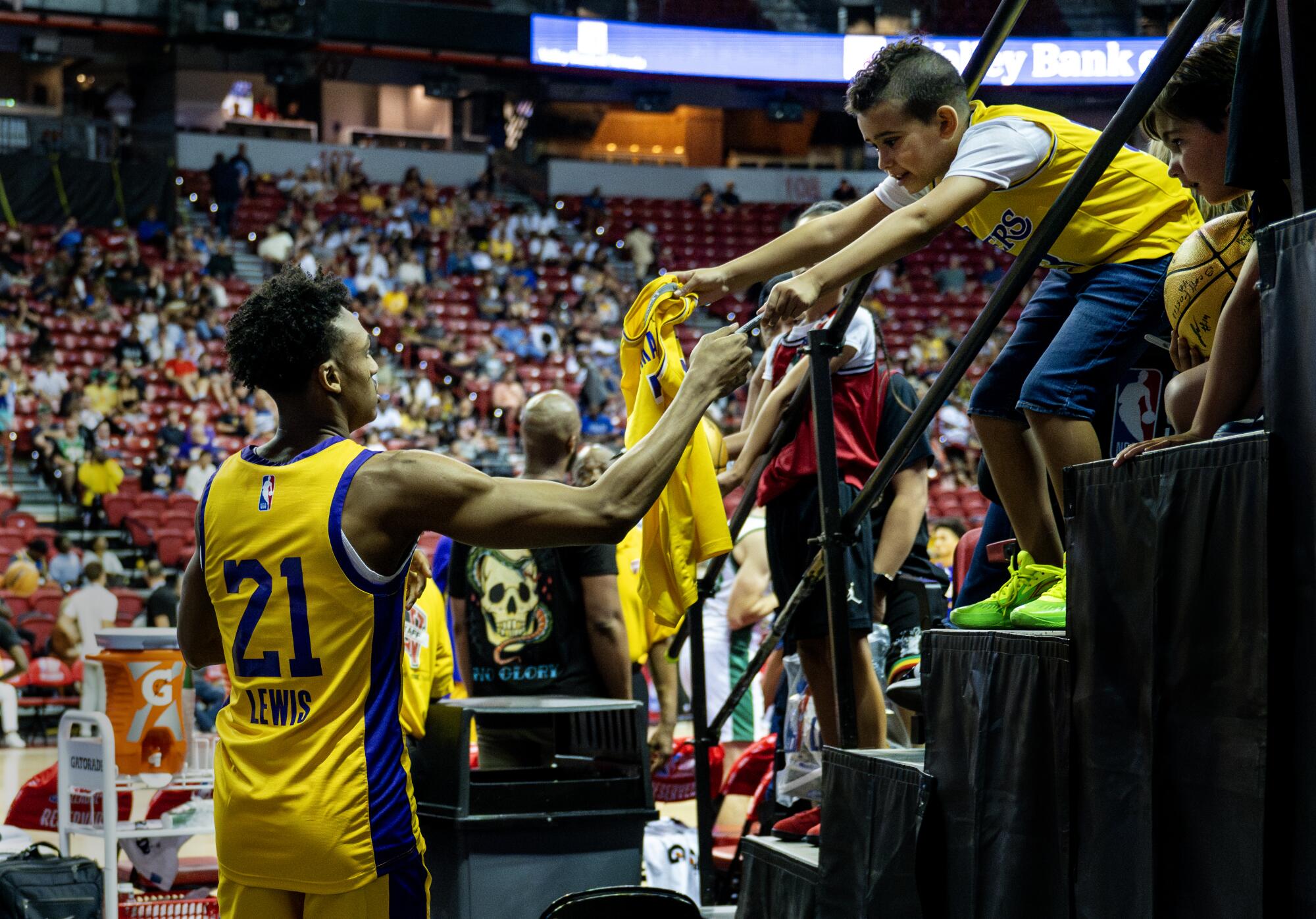
Even though he was born into a purple-and-gold world decorated with Kobe Bryant photos and Lakers blankets, Maxwell grew up in Las Vegas. That’s where Robert moved to find work, starting with filling the buffet trays at the Riviera hotel. He eventually worked for a local hospital, going back to school to get certified as a lab assistant and emergency medical technician.
His other children were athletes — a sister starred in track and two brothers were excellent football players. But Maxwell? That wasn’t supposed to be his path.
Robert saw the way a youth basketball coach was more concerned with winning than developing everyone.
“When he was little, second or third grade, he played basketball. But the coaches wouldn’t let him play,” Robert remembered. “They wanted superstars in second or third grade; they didn’t want to be a real coach. They wanted to win. ... They used to talk to him and treat him so bad. Scream and yell and if he made a mistake, they’d bench him.”
The Lakers re-signed some key young players and brought in veterans and youth this offseason. Here’s what scouts and executives said about the moves.
One halftime, the coach used a stream of profanities and Robert had enough. He took Maxwell out of the gym and out of basketball.
Maxwell cried the whole way home.
“My dream was to watch him on stage playing that saxophone,” Robert said.
Maxwell took lessons — $35 for 30 minutes. Robert loved music — he had an uncle in the L.A.-based group The Whispers. This could be a better path for Maxwell, Robert thought.
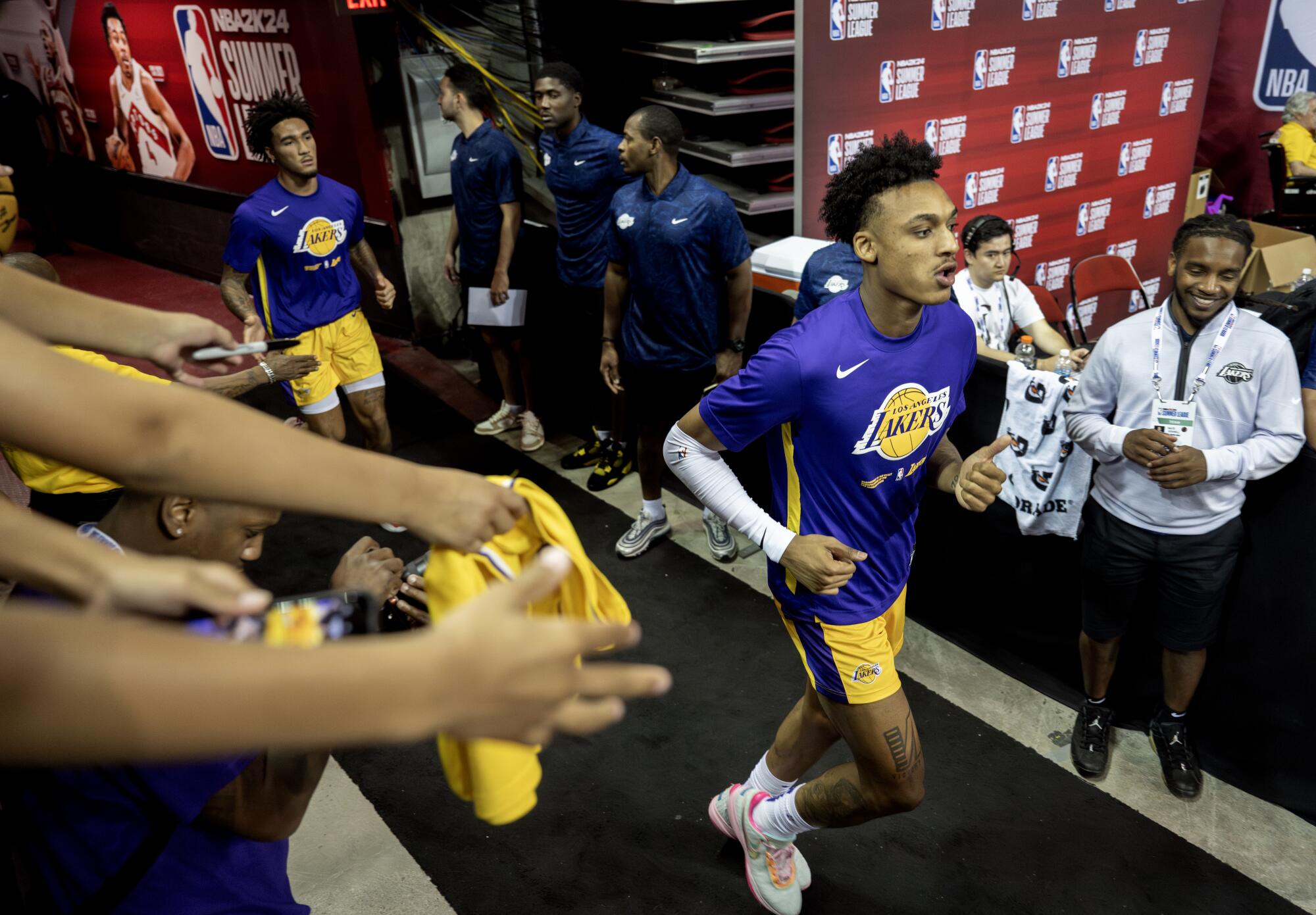
Maxwell practiced without putting up much of a fight. But when he had a chance, he’d sneak outside to keep shooting hoops, bother his older siblings when they were playing and take advantage of the moments when they went inside and he had the rim to himself.
Eventually, Robert had to relent. Maxwell starred on a freshman high school basketball team. He made a name for himself on the AAU circuit and earned a spot at an Arizona prep school. And after the pandemic threatened his chances of playing at a major university, he landed at Pepperdine — just off the Pacific Coast Highway his father used to want to drive.
“I was just in la-la land. Pacific Coast Highway. The ocean. And my son is going here and he’s fitting in. ... It’s been mind-blowing,” Robert said. “The way I grew up? I know God is good because everything’s just been working out for the kid.”
At each stop, Robert was there.
“That was really important,” Maxwell said. “Without that, without him living with me everywhere I’ve lived, I wouldn’t be where I’m at. Just to have someone to keep my head straight.”
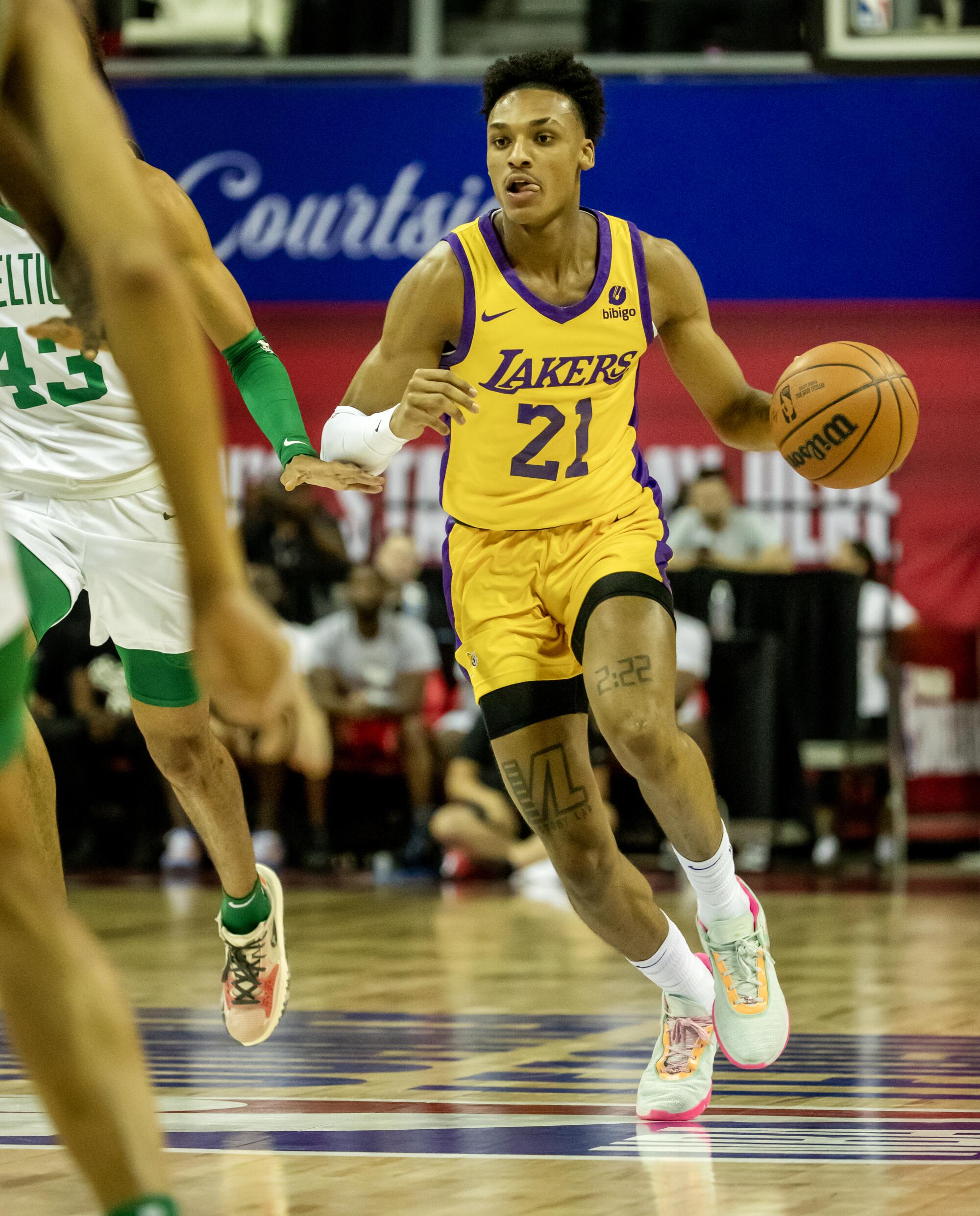
Early on, Robert was maybe a little too invested, a little too loud in the stands.
“There was just this one time, I told him ‘Stop’ just so loud. Everyone heard me,” Maxwell said. “And he stopped. I was just tired of it. Now, he just talks to me all the way home in the car. ... I had to calm him down a little bit.”
Robert didn’t really calm down — he just changed seats.
“So what I started doing was, I’d sit way up high where he couldn’t hear me,” Robert said with a laugh.
Even at Pepperdine, he was closer to the rafters than to the floor.
“I was already cured by then,” Robert said.
Learning how to calm down in the stands couldn’t prepare him for the stress of draft night.
At one point, the family thought it would be invited to New York to hear Maxwell‘s name get called in the first round. That invitation never came. Later, they got a call to sit in the stands, but it was last-minute. Instead, family and friends piled into a hotel room and watched pick after pick made.
The NBA’s new in-season tournament features pool play and elimination games, but the league and teams need to make it special to capture interest.
“During the season, we were hearing a little bit about the lottery,” Robert said. “Then we were hearing 15 to 20. ... Then the Clippers at 30. ... And then we were watching the mock drafts and he dropped to 32. Something ain’t right. … It was the most nerve-wracking night of my life.
“It was horrible.”
They got a call early in the second round that was a mix of good and bad news. A team wanted Maxwell on a two-way deal. That team, though, was the Boston Celtics.
“What flashed through my mind is ‘I don’t know if I can wear a Boston jersey ... but I’ll take it,’” Robert said.
Then the phone call came from Pelinka — a roster spot, not a two-way deal, was what the Lakers planned on offering. Soon after, the Lakers made the pick at No. 40.
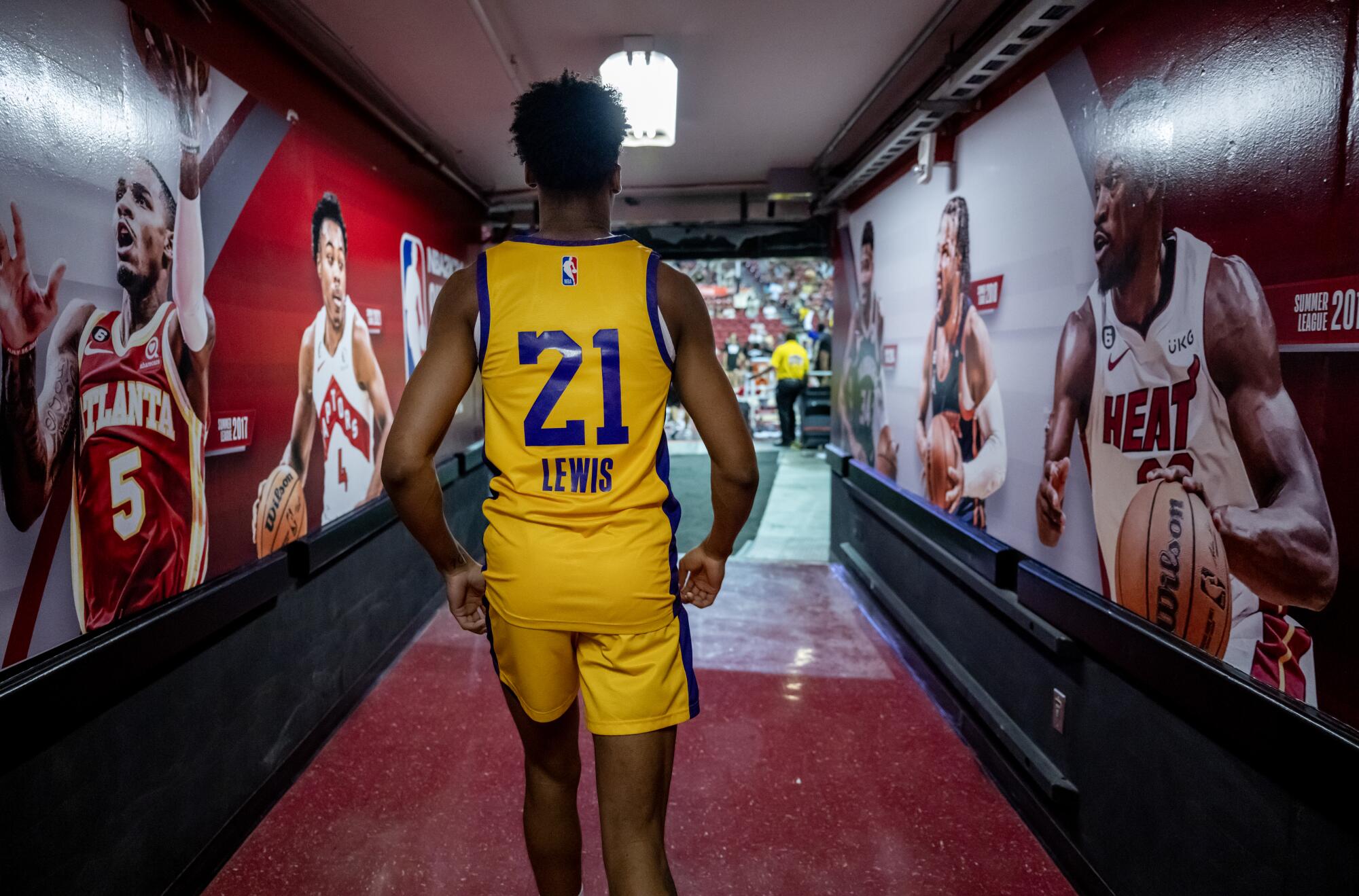
A dream that was once too impossible came true.
“I was just so proud and happy for Max. He put in so much work for so many years, so much time. ... I wasn’t happy for me. It’s not about me. It’s him and I wanted to see him fulfill his dream,” Robert said, his eyes filling with tears. “This is too big. That’s why I never asked for the Lakers. I just wanted him to get drafted.
“It still hasn’t kicked in.”
The next time he walks into the Lakers arena — this time before the opening tip and not after slinging programs — it undoubtedly will.
More to Read
All things Lakers, all the time.
Get all the Lakers news you need in Dan Woike's weekly newsletter.
You may occasionally receive promotional content from the Los Angeles Times.

